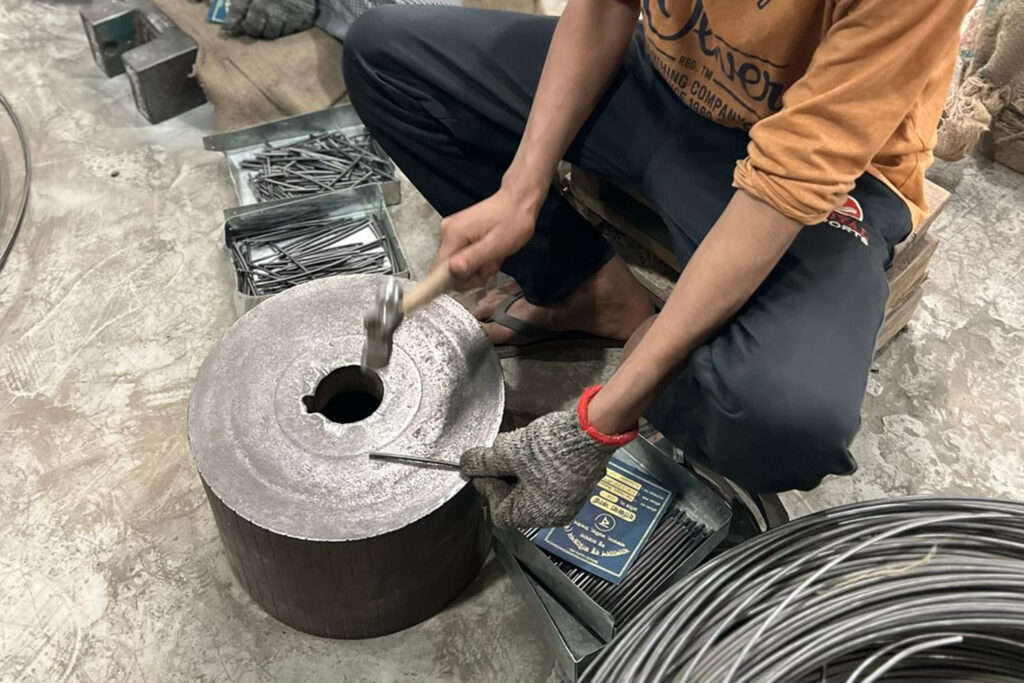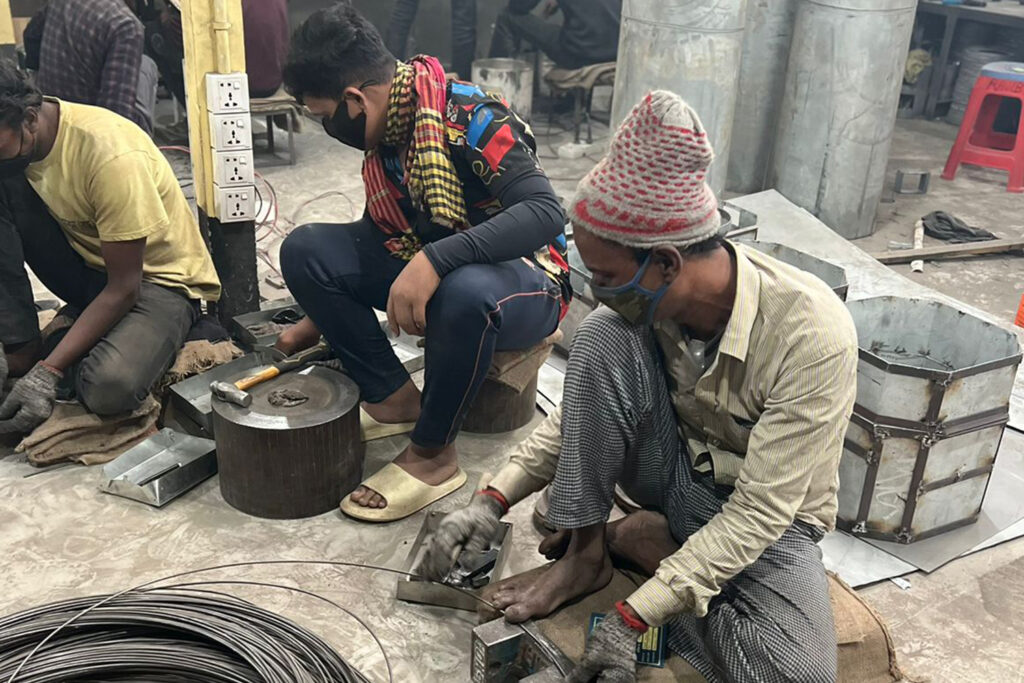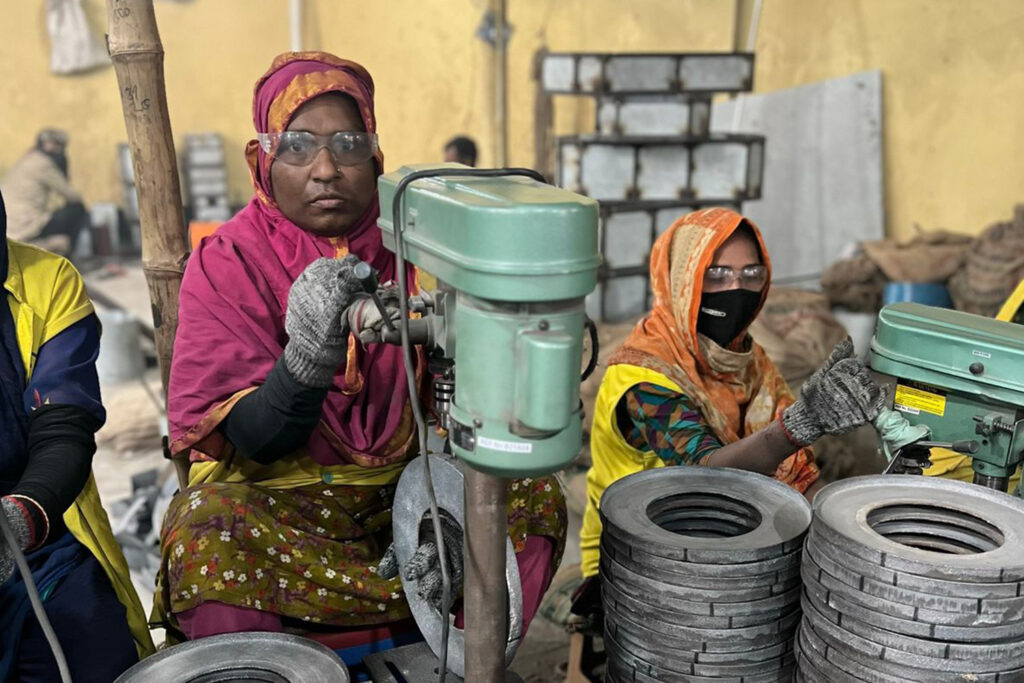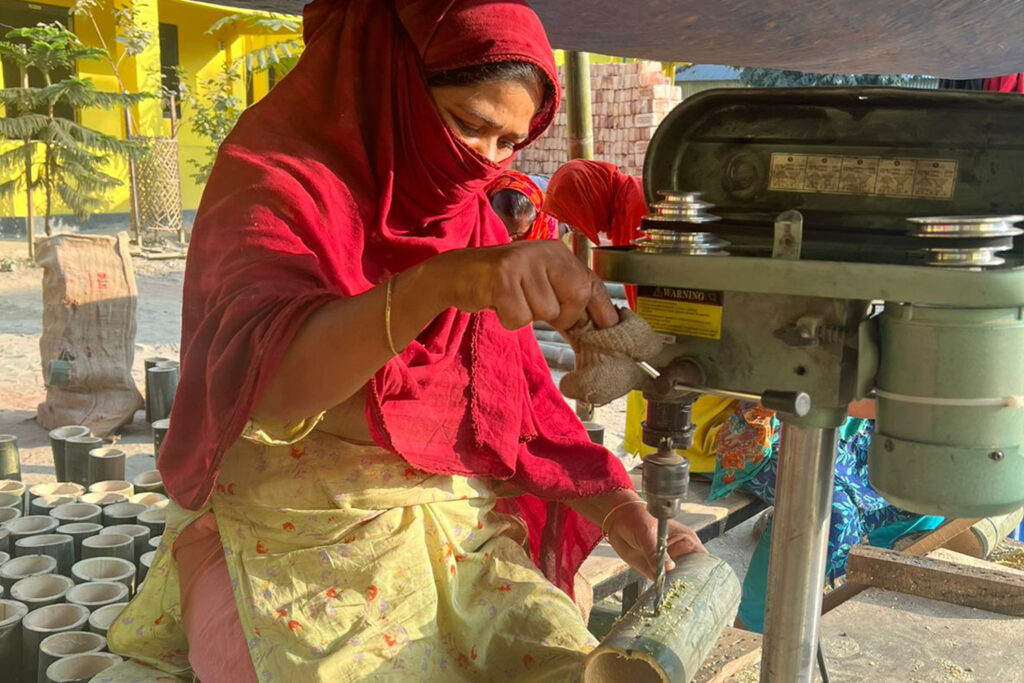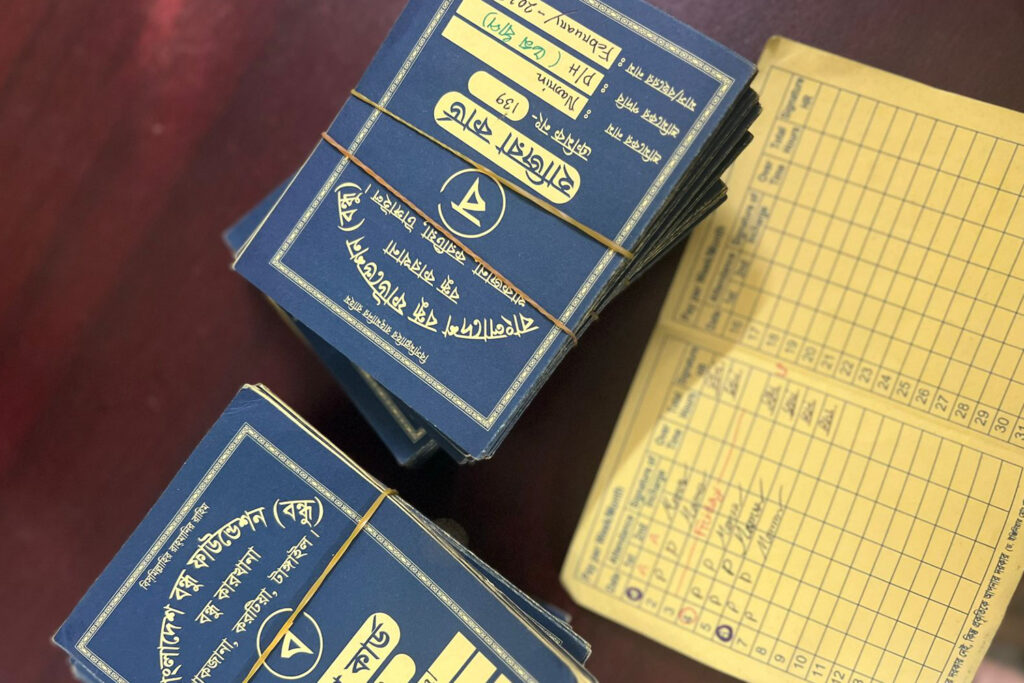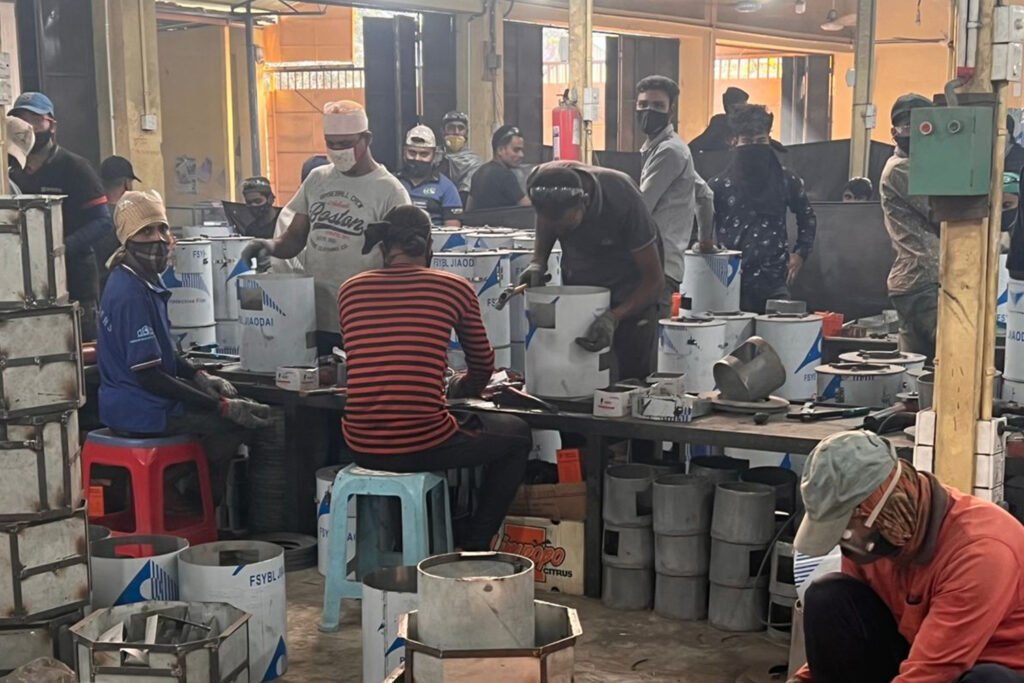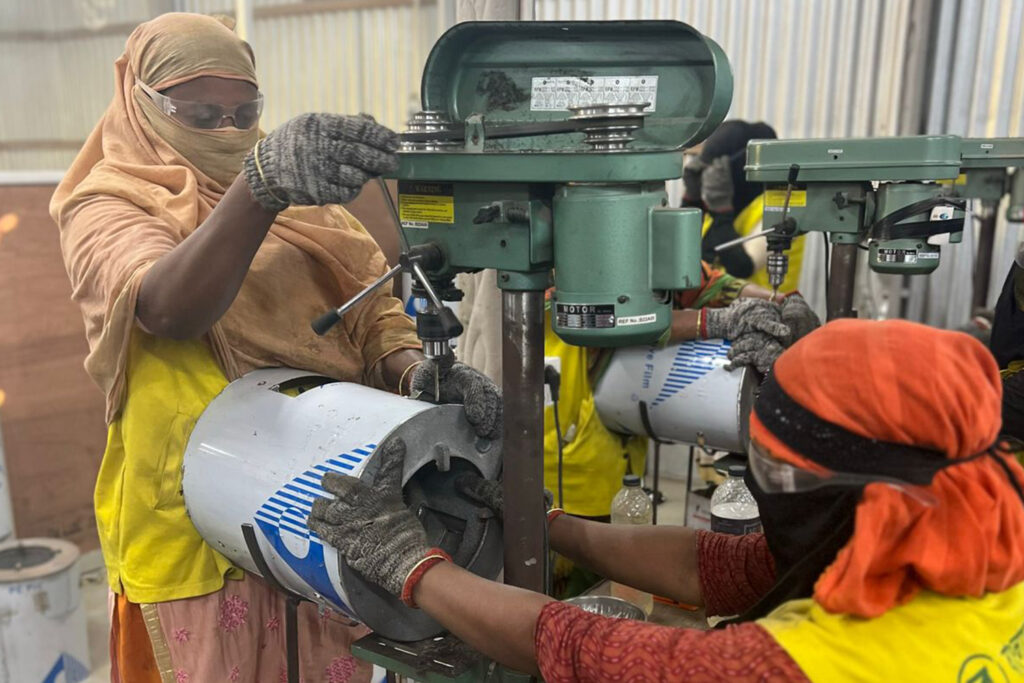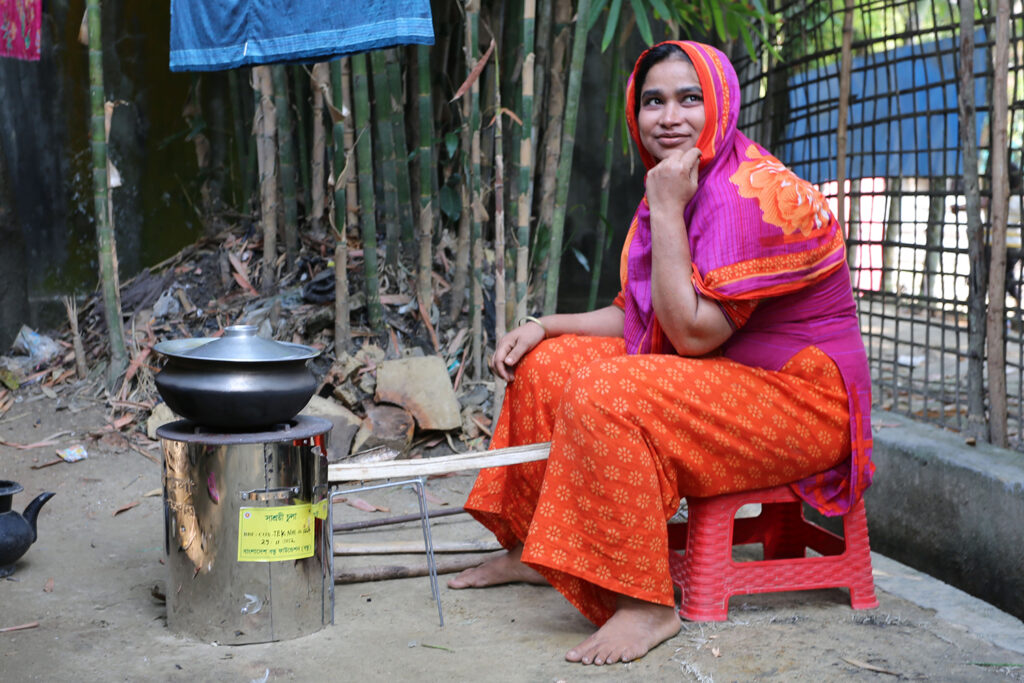Kitchens Without Borders:
The Sashroyi Chula
Indoor Air Pollution Solutions for the Marginalized of Bangladesh





The Sashroyi Chula program works with marginalized communities in Bangladesh, including those in refugee camps, host communities surrounding these camps, and other areas of indigenous, far-flung tribal communities. The improved cookstove, designed by a consortium of climate technology experts, is portable, properly insulated, and features effective airflow. It helps reduce firewood usage, improves biomass combustion efficiency, and ensures a healthier cooking solution in these settlements in Bangladesh.
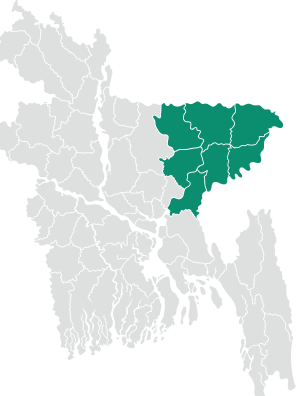
Bangladesh
Project Location: Kishoreganj, Molobibazar, Habiganj, Netrokona, Sylhet, Sunamganj, and Brahmanbaria, Bangladesh
Methodology: Technologies & Practices to Displace Decentralized Thermal Energy Consumption
Standard: Gold Standard
![]() Cookstoves Deployed: 200,984
Cookstoves Deployed: 200,984
![]() People Participating: 900,000+
People Participating: 900,000+
![]() Average Household Savings: ~$85/year
Average Household Savings: ~$85/year
![]() Jobs Generated: 300 people employed
Jobs Generated: 300 people employed
Moving Beyond Carbon Emission Reductions
Women in settlements face the brunt of small, enclosed spaces for cooking and are often susceptible to health risks such as respiratory ailments. The girl child in the family is usually exposed to similar health risks. This program aims to work with healthy cooking and integrate these marginalized settlement communities into enhanced energy access. These settlements are often in biodiversity-rich areas, and fuel wood use is the primary driver for degradation in these ecosystems. Furthermore, the manufacturing unit established in Tangail, which produces the portable cookstoves, has employed local individuals, contributing to the overall development of the district and improving the well-being of these villages.

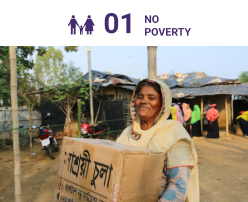
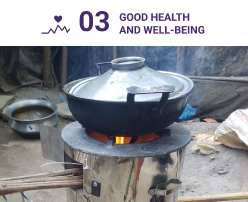
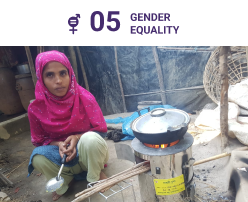
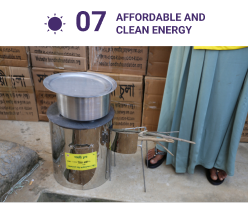
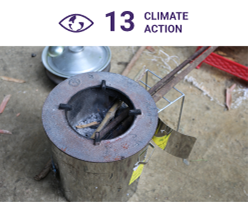
Over 200,000 improved cookstoves have been distributed in these settlements, resulting in nearly 50% less fuelwood use. This reduction directly enhances household savings for at least half of the households that buy firewood. Additionally, establishing local stove production units has created job opportunities for over 350 community members, with a significant share occupied by women. The health benefits of using these cookstoves also increase women’s chances of participating in the workforce, while healthier girl children benefit from improved educational opportunities.
The shift to better cookstoves allows users to eliminate smoke and particulate matter release by almost 100%. That leads to much cleaner indoor air and healthier respiration, an important issue for smaller enclosed cooking spaces.
The shift to improved cooking devices results in significant time savings, which otherwise would have been spent collecting firewood. This benefit is effected upon almost half the households in this program. The resulting time savings are of significant economic value for these women, while the allied health benefits allow them to join Bangladesh’s workforce.
The functionality of the improved cookstove directly enhances participating families’ access to clean energy. It is an important stepping stone for greater energy access in the future, including rural electrification devices.
Each Sashroyi Chula stove saves approximately 1.9 tCO2e annually, contributing to significant climate change mitigation with reductions of around 300,000 to 400,000 tCO2e annually—a prime example of climate action at scale. Furthermore, reduced firewood collection alleviates pressure on forest ecosystems, promoting healthier forests that support biodiversity regeneration and ecological conservation.
Significant Fuel Savings and Employment Generation

Over 200,000 improved cookstoves have been distributed in these settlements, resulting in nearly 50% less fuelwood use. This reduction directly enhances household savings for at least half of the households that buy firewood. Additionally, establishing local stove production units has created job opportunities for over 350 community members, with a significant share occupied by women. The health benefits of using these cookstoves also increase women’s chances of participating in the workforce, while healthier girl children benefit from improved educational opportunities.
Cleaner Indoor Air

The shift to better cookstoves allows users to eliminate smoke and particulate matter release by almost 100%. That leads to much cleaner indoor air and healthier respiration, an important issue for smaller enclosed cooking spaces.
Time Saving and Health Positive

The shift to improved cooking devices results in significant time savings, which otherwise would have been spent collecting firewood. This benefit is effected upon almost half the households in this program. The resulting time savings are of significant economic value for these women, while the allied health benefits allow them to join Bangladesh’s workforce.
Access to Cleaner Cooking

The functionality of the improved cookstove directly enhances participating families’ access to clean energy. It is an important stepping stone for greater energy access in the future, including rural electrification devices.
Cost effective CO2e Savings

Each Sashroyi Chula stove saves approximately 1.9 tCO2e annually, contributing to significant climate change mitigation with reductions of around 300,000 to 400,000 tCO2e annually—a prime example of climate action at scale. Furthermore, reduced firewood collection alleviates pressure on forest ecosystems, promoting healthier forests that support biodiversity regeneration and ecological conservation.
Gallery
